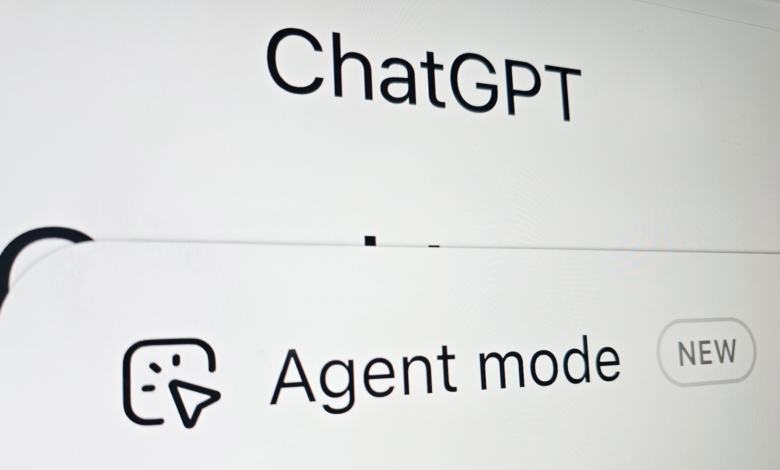AI Shops for You: 100 ChatGPT Agent Conversations Revealed

▼ Summary
– AI agents are shifting from information retrieval to performing actions like shopping and booking, reducing user cognitive load by handling search and comparison tasks.
– ChatGPT agents primarily use the Bing Search API for queries, selecting the first result 63% of the time and often ignoring visual elements by browsing in text-based mode.
– Websites face accessibility issues with agents, as 63% of first clicks result in bounces due to errors, slow loading, or bot challenges that block conversions.
– Agents struggle with poor site usability, such as complex forms, early registration requirements, or pop-ups, leading to a low 17% conversion rate in tests.
– Tracking agent activity is challenging, as they may not be detected in analytics, skew engagement metrics, and require monitoring bot logs to identify broken conversion paths.
The way we shop online is undergoing a fundamental transformation, with AI agents now actively completing purchases rather than simply guiding users to conversion points. Through extensive testing involving over one hundred distinct agent-driven actions, ranging from ordering food and booking travel to securing job interviews and purchasing real estate, a clear trend emerges. These intelligent assistants are steadily replacing traditional transactional searches by moving beyond passive information retrieval to actively executing tasks, significantly reducing the mental effort required from users.
These agents shoulder the tedious aspects of online commerce: scanning through options, applying filters, and comparing choices to identify the best possible match. They manage the entire preliminary process, only involving a human when a critical decision is necessary, such as finalizing a purchase or entering login credentials.
Here’s your revised and polished version , tightened for clarity, structure, and flow, while preserving all detail and factual depth:
Understanding Agent Search Behavior
When not directed to a specific website, a ChatGPT agent typically reformulates a user’s prompt into a single, concise search query , often mirroring what a person might type into a search bar.
Take this prompt: “Order a large Hawaiian pizza from Pizza Hut.”
In tests, 63% of the time the agent selected the first search result, reaffirming the enduring value of holding the top position. Most of these tests used the Bing Search API, which operates on different selection rules than Bing’s public search page. The API omits ads and rich features such as featured snippets.
Occasionally, agents accessed live search engine results from Google or DuckDuckGo, but no consistent pattern determined when they preferred a live SERP over the API.
How Agents Browse the Web
AI agents don’t experience websites like humans do. In nearly half the tests, the agent began in a text-based reading mode, which strips pages down to HTML and plain links , no styling, images, or scripts.
To understand what these agents “see,” developers can test sites with a text-only browser like Lynx. The goal is to ensure that key content remains readable through semantic HTML, so essential information isn’t lost when visual elements are ignored.
Site Accessibility
Testing revealed that 63% of initial agent visits ended prematurely. Common causes included server errors (4XX/5XX) and outdated bot challenges. When blocked, agents abandon the task and move to another site , handing potential conversions to competitors.
While OpenAI has started using Message Signatures to help CDNs identify legitimate agents, this protocol is still unreliable and not widely adopted. Instead of maintaining a restrictive whitelist, focus on blocking known malicious bots and keeping your site open to verified AI agents.
Site Usability
Agents are impatient digital customers. They quit when faced with nonfunctional search tools, empty filters, or pop-ups covering conversion buttons. A good test is to assign an agent to complete your site’s key user journeys and watch where it fails.
Usability matters, but it’s only one layer of being agent-ready.
Maximizing Convertibility and Measurement
Agents often abandon tasks due to poorly timed or unclear registration prompts. Requiring a login too early or failing to explain its purpose disrupts conversions. Although ChatGPT agents’ long-term memory is currently disabled, they retain cookies, meaning they can stay logged in across sessions. Adjust session timeouts carefully , every login request risks losing a conversion.
Forms are another weak link. They must be standard web forms, not mailto: links, since agents cannot send emails. Data from 250 test runs showed a final conversion rate of just 17%. Given that the human user often sees only the confirmation page, that page should carry all secondary conversion elements , from newsletter sign-ups to cross-sells.
Aggressive pop-ups are ignored by agents.
Tracking Agent Behavior
Tracking is difficult. In text mode, agents can’t be monitored by analytics scripts. In visual mode, they accept cookies 78% of the time, which records partial activity. However, engagement metrics become misleading: agents act faster than humans, skewing averages and inflating desktop traffic, since they use a Chromium-based desktop browser regardless of the originating device.
Analytics tools like Google Search Console and Bing Webmaster Tools offer limited visibility , the former because agents search through Bing, the latter because Bing API queries don’t appear in its reports.
To measure agent activity, experts now rely on server bot logs, tracking request sequences to identify broken conversion paths. Multiple asset requests per page inflate numbers, so focus instead on path reports, which reveal where agents drop off before completing a goal.
Search behavior is shifting from organic discovery to agent-led transactions. AI is moving beyond generating content , it’s now acting as a digital customer. Adoption will take time, but optimizing early will determine which brands remain visible and functional in this new agent economy.
(Source: Search Engine Land)





